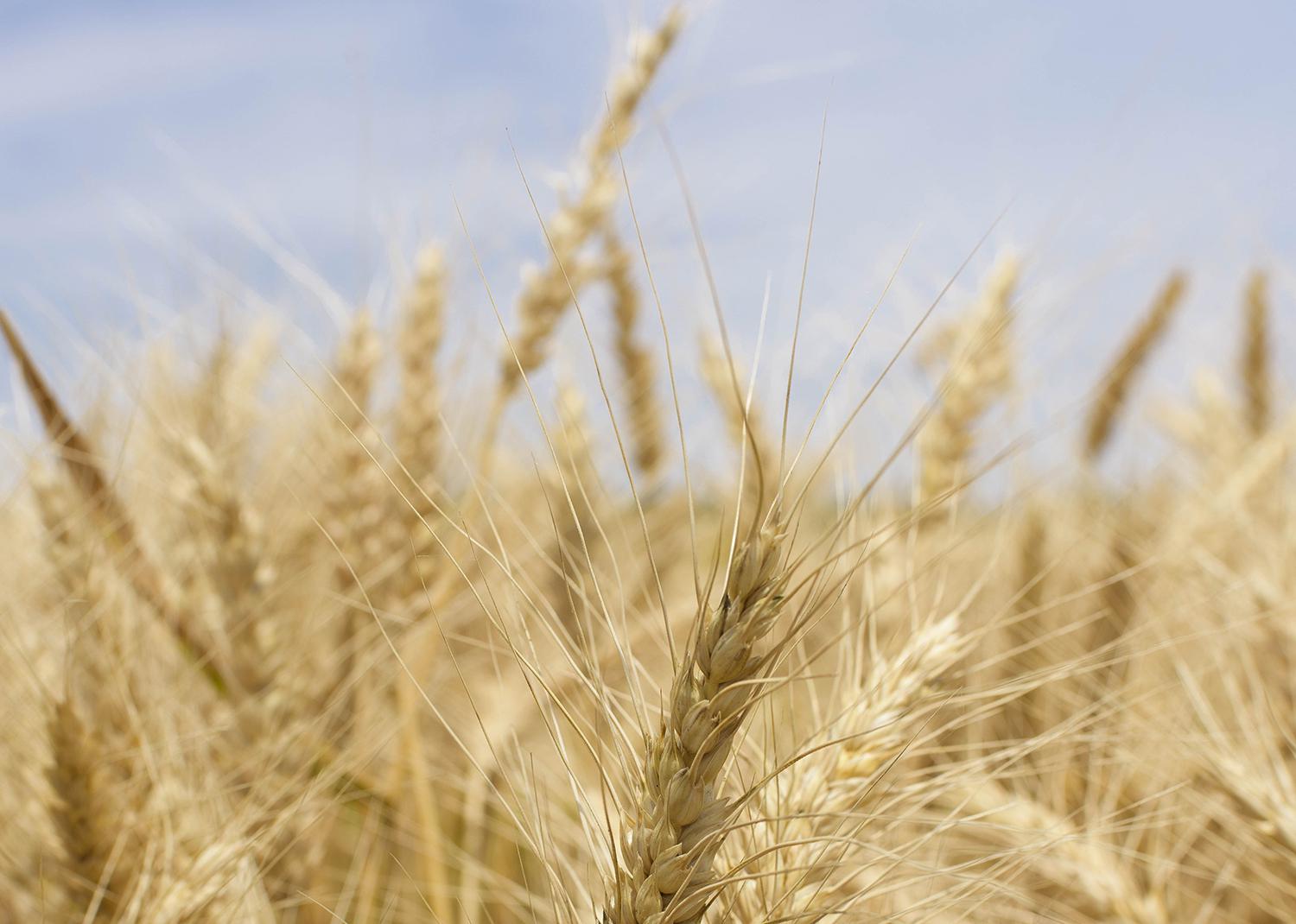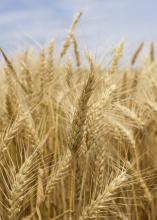Information Possibly Outdated
The information presented on this page was originally released on June 20, 2022. It may not be outdated, but please search our site for more current information. If you plan to quote or reference this information in a publication, please check with the Extension specialist or author before proceeding.
Wheat acreage begins rebound as prices soar
STARKVILLE, Miss. -- Climbing market prices for wheat are beginning to earn growers’ attention in Mississippi. The state’s wheat acreage is trending back up after several years of historic lows, and this year’s crop quality also shows promise.
The U.S. Department of Agriculture projects the average price in 2022 for wheat to be $10.75 per bushel, which is more than double the 2020 price of $5.05. The average price last year was $7.70 per bushel.
Two separate, simultaneous elements are driving prices up: the Russian invasion of Ukraine; and a drought in one of the largest wheat-producing regions in the U.S.
The ongoing conflict between Russia and Ukraine has had a huge impact on global and U.S. markets. Combined, these countries contributed 30% of the global wheat export market before the invasion. The USDA projects Ukraine will account for only 5% of global exports in 2022, which is half of its normal wheat shipment.
“This war has caused a major shift in the global wheat markets,” said Will Maples, agricultural economist with the Mississippi State University Extension Service. “Ukraine is projected to see nearly a 40% reduction in output. The total amount of this production is dependent on how long the conflict continues.
“With the Black Sea coast blockaded by the Russian military, Ukraine is having to resort to shipping grain through Poland,” he said. “They do not have an efficient infrastructure for this overland trade route as they did on the Black Sea.”
Meanwhile in the U.S., crop quality west of the Mississippi River is compromised by a dearth of rainfall.
Including the Southern Plains and major production areas in western Kansas and Oklahoma, 49% of the country’s wheat crop is planted in areas under an extended drought.
“Only about 30% of this year’s nationwide winter wheat crop is rated good or excellent by the USDA National Agricultural Statistics Service, but 77% of Mississippi’s wheat falls under those categories,” Maples said. “This has contributed to higher prices.”
Nearly half of the state’s wheat crop had been harvested by June 12, according to a USDA-NASS crop progress report. Producers are estimated to have 75,000 acres of wheat this year, which is still far less than acreage planted before 2016. Wheat fields once covered about 200,000 acres in Mississippi.
Wheat is typically planted between mid-October and mid-November. The crop had good weather to grow into maturity.
“We had relatively dry conditions during growing season, and any time it’s dry, it’s conducive to higher productivity and yields in wheat,” said Erick Larson, MSU Extension grain crop specialist. “It’s an anomaly to get as dry conditions as we did last winter. We returned to normal rainfall in March and most of April before it dried out again. The tail end of the wheat year is more important in terms of yield potential.”
Larson said he expects a more pronounced wheat planting rebound in 2022–23 if prices remain favorable.
“Because markets were so strong, several growers who were using wheat as a cover crop opted to keep it and double-crop other crops behind the wheat,” he said. “Rainfall delayed harvest in some cases, and wheat is vulnerable to rainfall at harvest time. The sunny, hot weather we’ve seen for much of June is good for those who have not harvested.”





